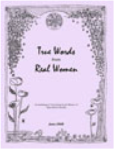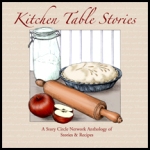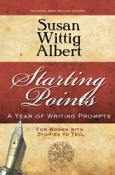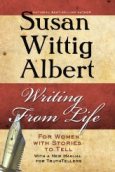
“Be patient toward all that is unsolved in your heart and try to love the questions themselves, like locked rooms and like books that are now written in a very foreign tongue. Do not now seek the answers, which cannot be given you because you would not be able to live them. And the point is, to live everything. Live the questions now. Perhaps you will then gradually, without noticing it, live along some distant day into the answer.” –Rainer Maria Rilke
I do lots of things – I embroider, I spin yarn on my spinning wheel, then dye the hand spun in a vast array of hues, before knitting it into hats and scarves, sweaters and mittens for family and friends. I love crafting, losing myself in a universe of texture and colour, dreaming about what to create next. I love to cook too, rustling up dinners and treats for a family whose hollow legs always seem to be running on empty! Gathering the ingredients, peeling, chopping, arranging in little dishes, splashes of colour which I can’t help but set out like the spectrum of a rainbow, anticipating the promise of aromas floating through the house, waiting to greet the hungry travellers when they fall through the door, back into the warmth and security of home.
The days simply aren’t long enough to do all the things I like to do, which means I have to choose. Trying to choose between crafts and writing is like attempting to decide whether to engage with left or right brain based activities. Except that it’s not, because both types of pursuits incorporate aspects of each side of the brain. Still there is a difference. And that difference manifests in the ‘felt-sense’ of these very different activities. Much as I love the sensuous nature of crafts and colour, it is only when writing that I feel most alive. Then, it is as if my senses have become hyper-vigilant; mindfulness is no longer a word or a movement, it is a state of being.
Mindfulness is a concept which can apply to any aspect of life. It is more an attitude than a process. It constitutes a way of seeing, a way of being in harmony with the world as it manifests in both the inner and outer realms. That writing mindfully is a practice becomes evident when we approach it as a method, a set of precepts on how to ‘do it’. And yes, the process is important, the practices we incorporate develop into habits bringing with them a sense of rightness as the rituals gradually become embedded in our practice, one writing session at a time. The practice then develops into a kind of trellis, a supporting structure, a habit we can rely upon to carry us from the minituae of everyday distractions to the heart of what lies directly in front of us. Still, important and even necessary as it is, the ritual of the practice can only ever be like a finger pointing to the moon. The essence, or juice, of the practice lies curled up within our intention as we sit at our writing desk yet again.
When we first begin to write mindfully we notice an ever deepening sense of catharsis. It is as if our souls slowly begin to trust that we are listening to them, and so over time, we discover something changing deep inside. This sense of catharsis bears only a passing resemblance to that experience of release we sometimes notice when we write say, our memoirs, divulging our darkest secrets and our pain to the waiting blank page, (though of course, in practice the two experiences often overlap). Mindful writing takes us to a different place, and it is because of this that we refer to it as a practice, akin to meditation practice. For mindful writing is indeed a meditation practice, like sitting practice in Buddhist meditation for example. The similarities become most evident in their effects, both dependent upon the attitude and intentions we carry into our respective practices.
Writing mindfully generates a kind of wondering about the world, about ourselves, about everything which surrounds us. From this pondering emerges a sense of something that has been closed and locked away which just now is opening, like the petals of the lotus extending outwards, reaching up to the aery spaces above. We feel as if our souls are enveloped in a lightness of being, as if everything is just as it ought to be. Questions emerge and then disappear; answers are neither sought nor required. Doubt and scepticism have slipped away, leaving in their wake the beauty of pure wonderment.
“Every day, every day I hear
enough to fill
a year of nights with wondering.”
Denise Levertov
It is as if our minds are floating in a sea of light-filled consciousness, as if our entire beings are resting in this unseen, but deeply felt, space of awareness. From this perspective we intuit what is ‘good’ and ‘right’ and ‘beautiful’. We may not be able to quite articulate in words what we are experiencing, but we ‘know’ with a kind of ‘womb-knowing’ that all is good, even if outwardly it may appear to be anything but! When we hit this ‘zone’ we know we have written our way back home.
Mindful Writing Prompt:
See this month’s prompt below. Take your time, read it a few times, listening to the sounds of the words as they roll around your tongue. Breathe into the question, slowly. Allow the question to unfurl its meaning, to roll in front of you, to offer itself to you as a gift, a grace, a gratuitous opportunity to lift the veil between what you think you see, and what is really in front of you.
All of life, all living is held within the space of a breath. To remain still, to sit in silence and solitude, breathing, just breathing, envelops our consciousness in peacefulness and an all-abiding sense of calm, peace comes dripping slowly, permeating each fibre of our being. Breathing mindfully into the present moment opens us to seeing with new eyes, which we can then carry into our writing.
Take a deep breath. What do you feel rising in you with each breath? When you look, what do you see? What changes? What remains the same?






